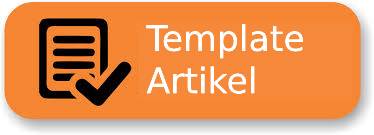Peningkatan Pemahaman Bahaya HIV AIDS pada Remaja di Pondok Pesantren Putri Hirzu Millati
Abstract
The virus known as HIV (Human Immunodeficiency Virus) can infect white blood cells, which
causes the human body's immunity to decrease. AIDS (Acquired Immuno Deficiency Syndrome) is an
infection of the HIV which causes a set of symptoms to arise due to reduced immunity. Southeast Asia
is the continent with the 2nd highest population of people infected with HIV in the world (3.8 million
people). The number of HIV cases in Indonesia reached its peaked in 2019, with 50,282 cases. In 2013,
12,214 AIDS cases were the highest in the last eleven years. HIV cases most often occur in productive
age, 25-49 years. With an HIV incubation period of around 5-10 years, it is estimated that the first
contact with HIV has occurred at a young age, so adolescence is considered a vulnerable age contracting HIV. The activity carried out was counseling about HIV AIDS using powerpoint media. The
activity was attended by 21 youths at the Hirzu Millati Princess Islamic Boarding School. Counseling
about HIV AIDS shows that young women are able to understand and there is an increase in knowledge
about HIV AIDS as seen from the results of questions and answers.
References
Ayubbana, S., Ludiana, L., Fitri, N. L., & Sari, S. A. (2022). Remaja yang Terinfeksi HIV/AIDS di Indonesia (Analisis Data Publikasi SDKI 2017). Holistik Jurnal Kesehatan, 16(2), 142–148. Https://Doi.Org/10.33024/Hjk.V16i2.53 36
Husaini, H., Panghiyangani, R., & Saputra, M. (2017). Pengaruh Penyuluhan HIV/AIDS terhadap Pengetahuan dan Sikap tentang HIV/AIDS Mahasiswi Akademi Kebidanan Banjarbaru Tahun 2016. Indonesian Bulletin of Health Research,45(1), 11-16.
Kementerian Kesehatan RI. (2015). Infodatin Situasi Kesehatan Remaja.
Kementerian Kesehatan Republik Indonesia. (2020). Infodatin HIV AIDS.
Kementerian Kesehatan Republik Indonesia. (2022). Profil Kesehatan Indonesia 2021.
Pramita, Et Al. (2022). Education Of Sexual Behavior Among Adolescent Community To Prevent HIV/AIDS. Kolabarasi Jurnal: Inspirasi Masyarakat Madani, 022, 206–211.
World Health Organization. (2019). WHO HIV update, Global Summary Web.








